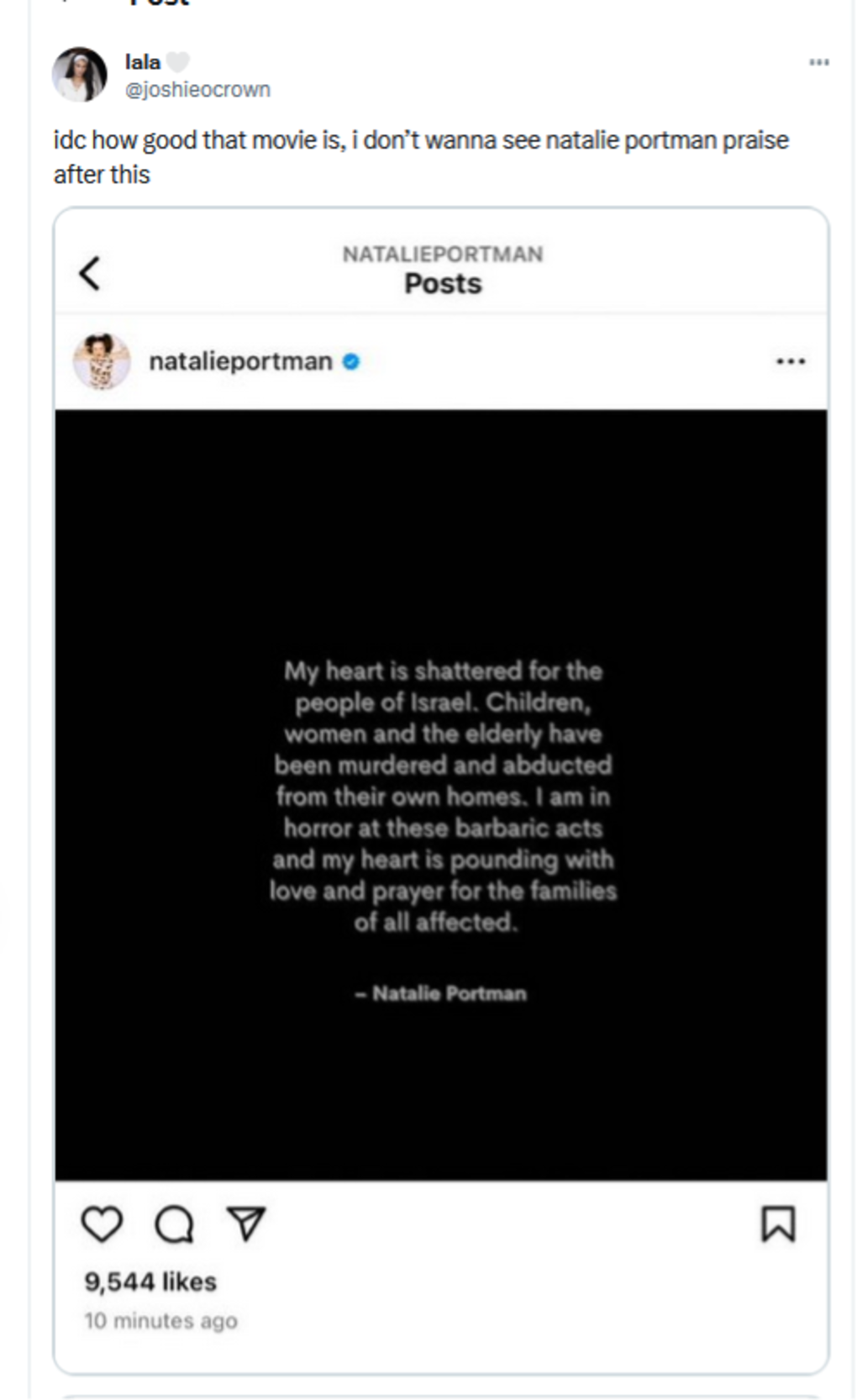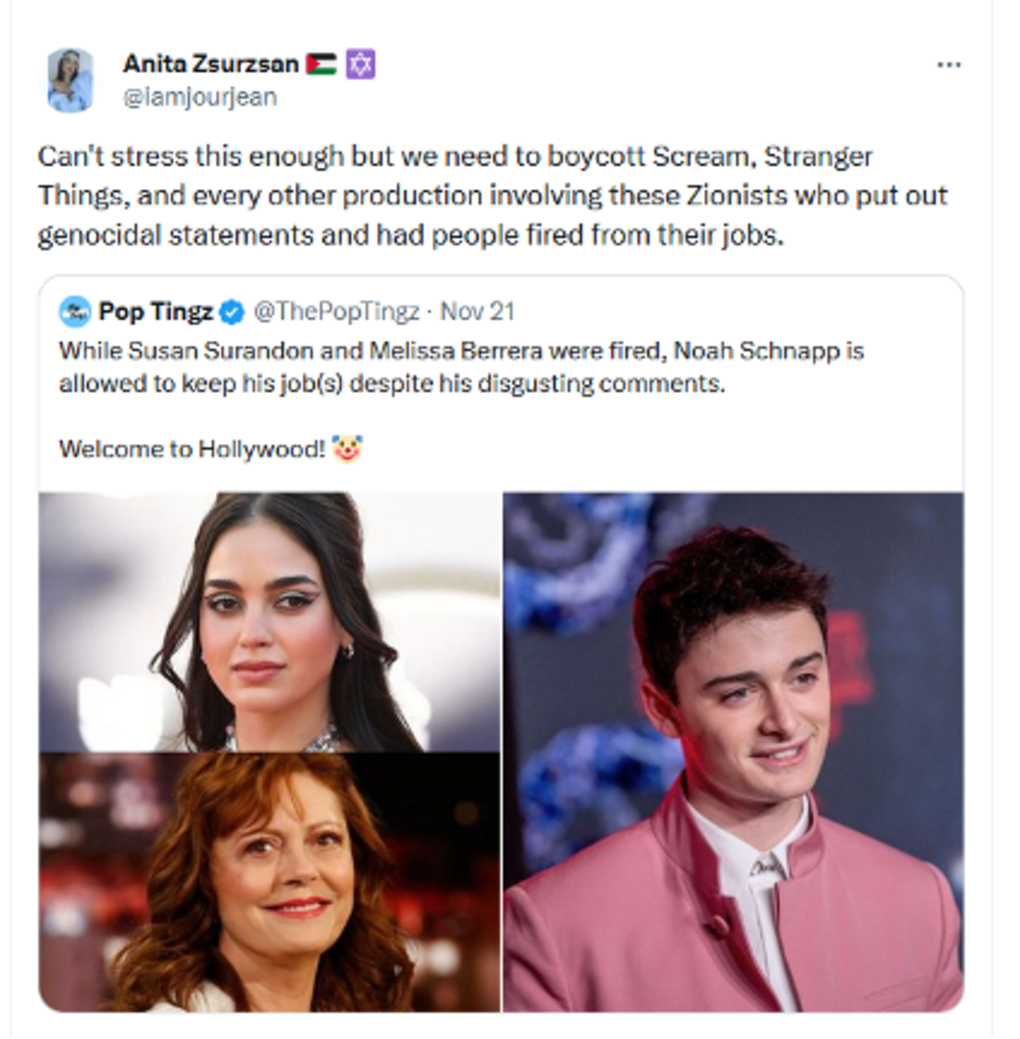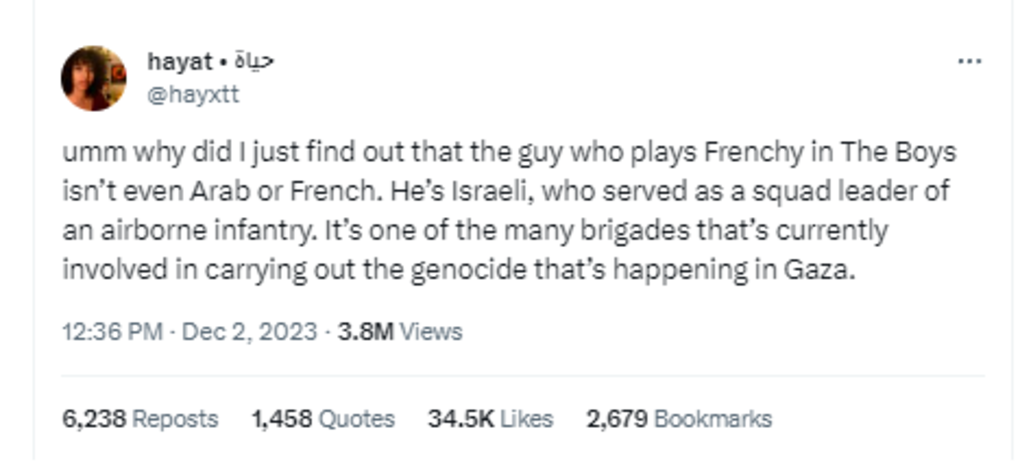
Screenshot from the spreadsheet “is your fav author a Zionist”, circulated in May 2024. (Screenshot/Google Sheets)


Explore resources and ADL's impact on the National Strategy to Counter Antisemitism.
Since the Hamas-led terror massacre in southern Israel on October 7, 2023, BDS (Boycott, Divestment and Sanctions) campaigns directly targeting “Zionist” institutions, businesses or individuals, have persisted in response to Israel’s operations against Hamas in the Gaza Strip.
BDS is a component of a long history of campaigns and efforts to delegitimize and isolate Israel. In recent years, this has explicitly focused on the rejection, isolation and marginalization of Zionists and institutions that “platform” Zionists or people supportive of Israel.
The campaigns attack institutions, businesses or individuals that BDS activists believe are somehow complicit in Israel’s military response to the mass terror operation. Most, but not all of the targeted business owners and individuals are Jewish, underscoring the antisemitic impact of these campaigns, which at times discriminate along religious, ethnic and national lines.
Some of these campaigns have been around for years. Many campus groups have demanded divestment from weapons companies and other businesses that contract with Israel. In the 2023-2024 academic school year, at least 86 BDS resolutions were considered across undergraduate, graduate and professional student organizations and faculty/staff unions. Seventy-seven passed and nine were voted down. Additionally, since the October 7 attack, at least nine cities or counties voted to divest from companies doing business with Israel and/or adjusted investment policies that were hailed as victories by anti-Israel advocates.
Since October 2023, BDS activists have also targeted companies not on the formal BDS boycott list, including McDonald’s, Disney and Starbucks. Some have engaged in vandalism of these businesses. Simultaneously, a pattern has emerged in which anti-Israel activists have attempted to corral support for boycotts of “Zionist” healthcare providers, academic institutions and professional and cultural associations. Perhaps most disturbingly, there has been a spate of vandalism against Jewish-owned businesses, restaurants and even homes.
Vandalism of Jewish or “Zionist” businesses has increased in the wake of October 7. For example:

The Yeshiva University subway sign in New York with the "a" covered by a Hamas-affiliated inverted red triangle, February 2025. (Courtesy)
In addition, boycotts of Israeli or Jewish individuals or institutions that support Zionism or “platform” Zionists have emerged. For example:
Several boycotts of “Zionist” businesses have emerged or been reintroduced. For example:

A screenshot from a since-deleted New York City restaurant boycott list on Google Maps, October 2024. (Screenshot/Google Maps)
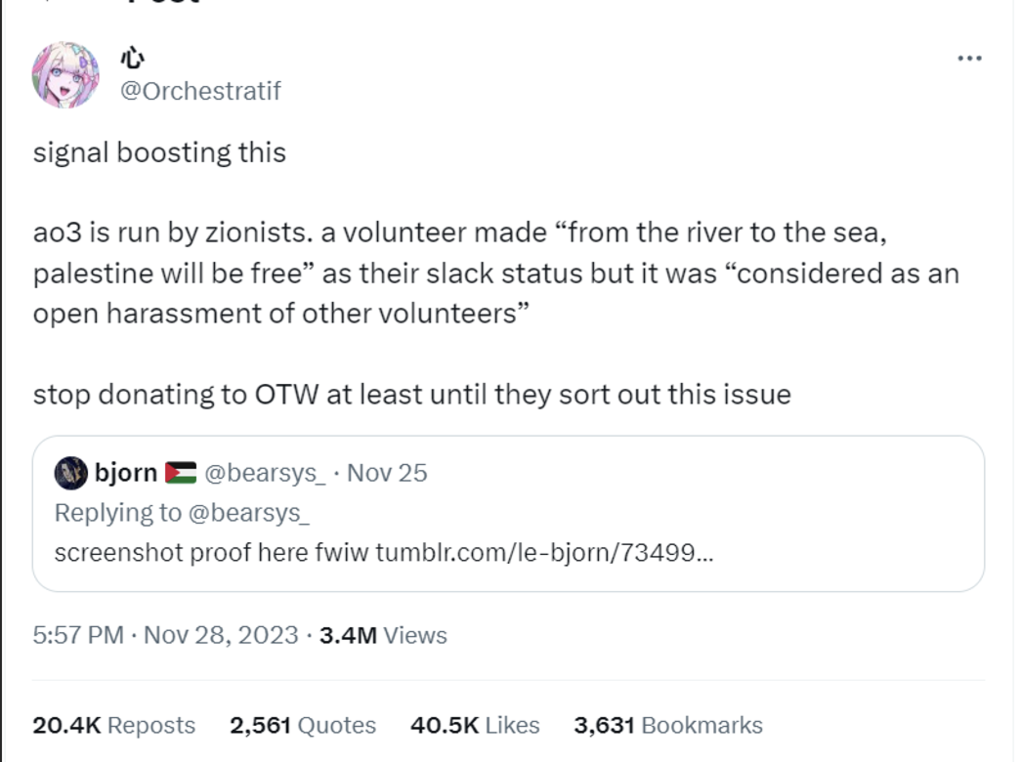
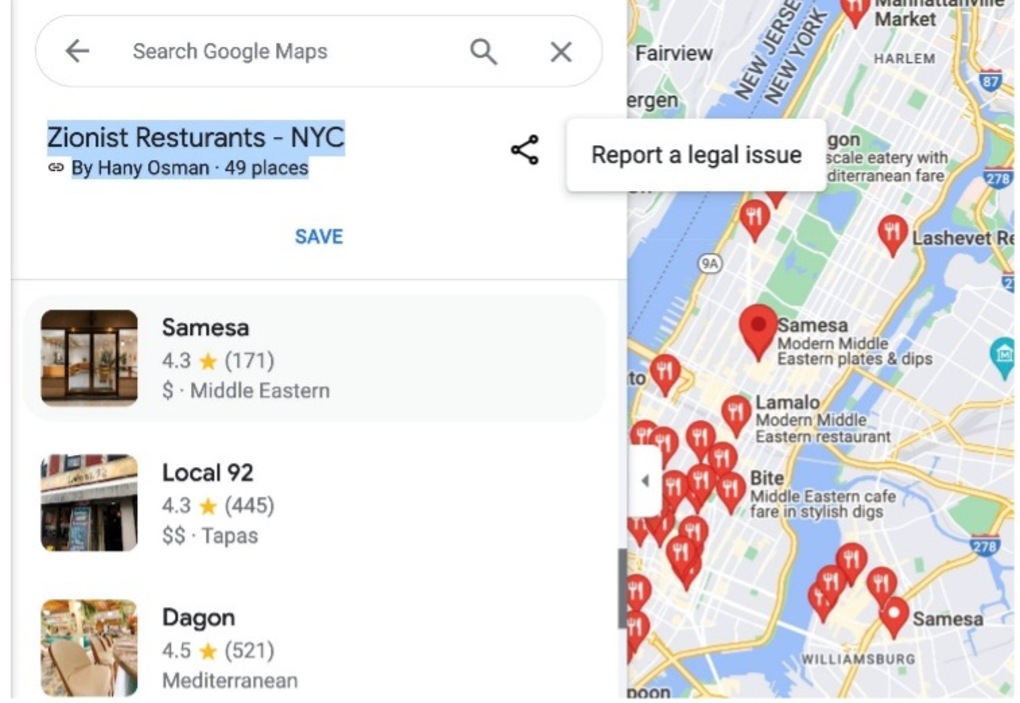
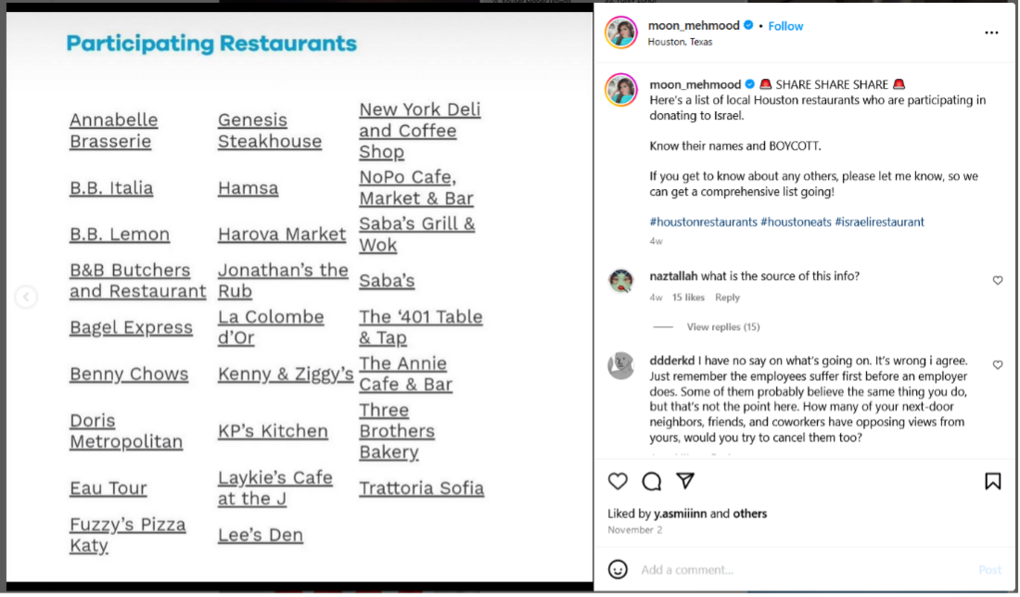
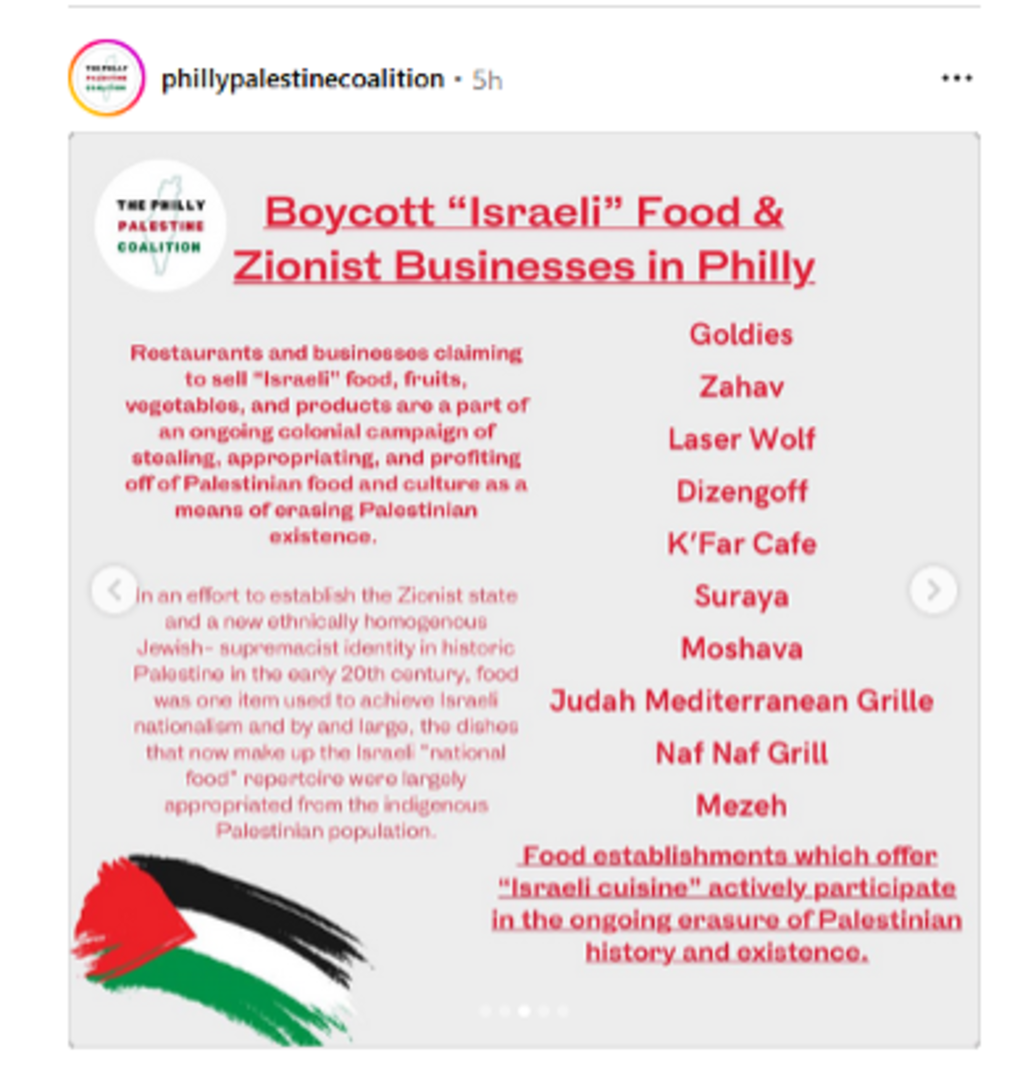
Calls to boycott “Zionist actors” – which includes singers, producers and other performers – have also persisted. Many, but not all, targets of these boycotts are Jewish and/or Israeli; they are accused of “supporting Zionist discourse” by expressing anger at the October 7 attacks or not publicly sharing “sufficient” outrage at the Israeli counteroffensive.
